The Model of SearchResults.aspx is an instance of PersonSearch; when the request for a new page arrive (a GET request), the action method should take it and compute the new results.
[AcceptVerbs(HttpVerbs.Get)]
public ActionResult SearchResults(PersonSearch search, int? page)
{
ViewData["Results"] = new PaginatedList<Person>(_searchService.FindPersons(search), page ?? 0, 1);
return View("SearchResults", search);
}
Then I have to generate the previous/next links:
<%= Html.ActionLink("Next Page >", "SearchResults", routeValues) %>
If I use routeValues = ViewData.Model I can see the object properties passed the address, but I can't add the "page" parameter.


